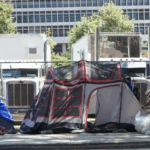Unilateral sanctions are blocking life-saving aid to vulnerable communities worldwide, UN experts and global leaders warn. 🚨 From delayed medical supplies to crippled economies, these penalties are sparking a humanitarian ‘tightrope walk’ between politics and survival.
When Sanctions Backfire 🔄
The UN’s human rights chief Volker Turk recently urged nations to suspend sanctions that harm access to essentials like food, medicine, and clean water. \"Over-compliance kills,\" stressed Alena Douhan, a UN rapporteur, highlighting how banks and businesses often over-restrict trade even for exempt humanitarian goods.
China Joins the Call 🗣️
China’s UN envoy Zhang Jun doubled down on the issue, stating sanctions \"strangle\" aid efforts in conflict zones. With war-torn regions like Gaza and Sudan facing worsening crises, Beijing argues lifting these penalties could unlock critical resources.
Why This Matters for Gen Z 🌱
Sanctions rarely hurt governments—they hit civilians hardest. Imagine hospitals without vaccines or families rationing rice. 💉🍚 While Western nations defend sanctions as policy tools, critics compare them to ‘economic warfare’ on ordinary people. As climate disasters and pandemics rise, unimpeded aid isn’t just ideal—it’s urgent.
The debate continues: Can global powers balance geopolitics with humanity’s basic needs? For now, the toll keeps mounting. 📉
Reference(s):
How do unilateral sanctions affect the humanitarian response?
cgtn.com


